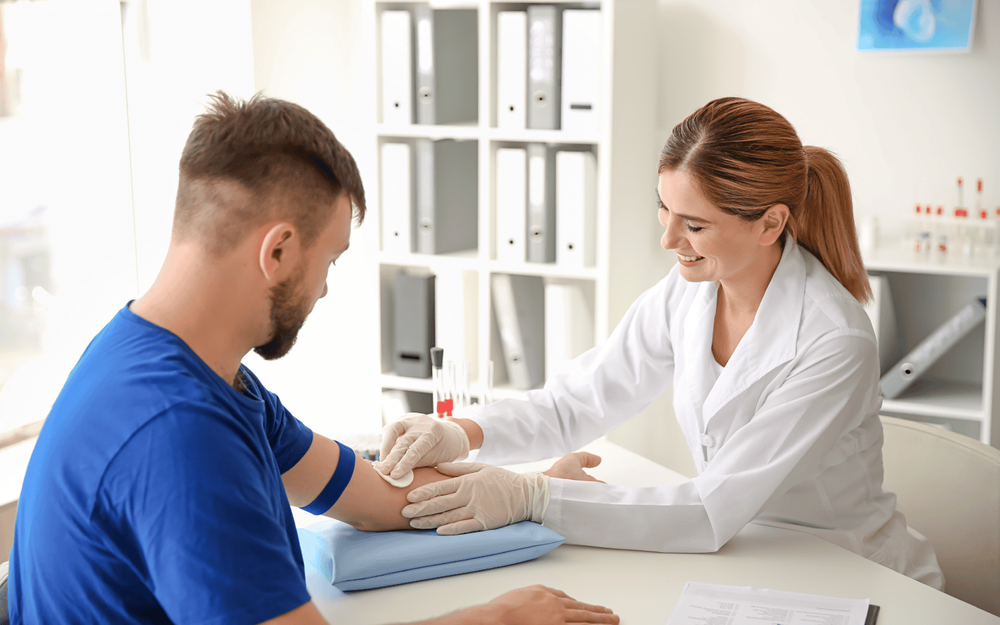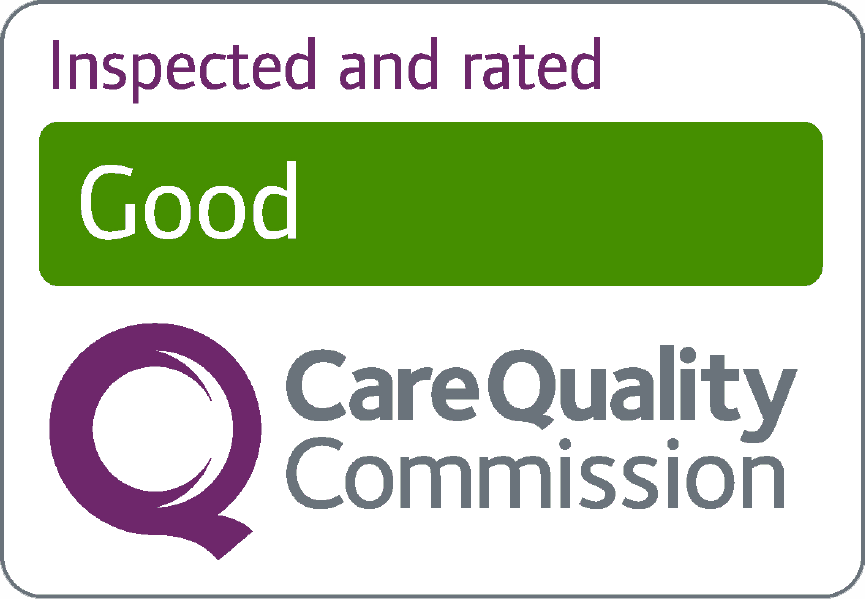
Cholesterol check at home
Keeping an eye on your cholesterol is a key part of looking after your heart health. With more people interested in managing their health from home, home cholesterol tests have become popular. They promise a quick and easy way to check your cholesterol without needing to visit a clinic. But how useful are these tests, and when might you want to consider booking a professional cholesterol test instead?
In this article, we’ll walk through what cholesterol is, why checking it matters, the pros and cons of home testing and why professional tests remain the gold standard for a full and reliable health picture.
What is cholesterol and why should you care?
Cholesterol is a fatty substance found naturally in your body. It’s important because it helps build cells and make hormones. Your body makes cholesterol, but you also get it from certain foods like meat, eggs and dairy.
Not all cholesterol is the same. There’s:
-
LDL (low-density lipoprotein): Often called the ‘bad’ cholesterol because too much can lead to artery blockages.
-
HDL (high-density lipoprotein): The ‘good’ cholesterol that helps clear the bad stuff from your bloodstream.
When doctors check cholesterol, they usually look at your total cholesterol (all types combined) as well as the individual LDL and HDL levels, plus something called triglycerides, another type of fat in your blood.
Why does this matter? Because having high LDL or triglycerides can increase your risk of heart disease or stroke. Keeping your cholesterol in a healthy range helps protect your heart and blood vessels.
Why should you check your cholesterol?
Cholesterol problems don’t usually cause any symptoms. You can feel perfectly fine but still have high cholesterol that quietly damages your arteries. That’s why regular testing is important, so you can catch any issues early.
Checking your cholesterol gives you a clearer picture of your heart health. It can help you:
-
Understand your risk for heart disease
-
See if lifestyle changes like diet and exercise are making a difference
-
Know if you need medical treatment to lower your cholesterol
Regular testing is especially important if you have risk factors like a family history of heart problems, high blood pressure, diabetes or if you’re overweight.
Home cholesterol tests: what are they?
Home cholesterol tests have grown in popularity because they offer convenience and privacy. You can buy kits from pharmacies or online that let you take a small blood sample yourself, usually by pricking your finger.
There are generally two types of home tests:
-
Instant tests: These give you quick results, often showing your total cholesterol and sometimes estimates for LDL and HDL.
-
Lab mail-in kits: You collect your blood sample at home and send it to a lab for analysis. The results come back after a few days.
These tests can be useful if you want a quick snapshot of your cholesterol levels or are managing your health between doctor visits. They can help you stay aware and motivated to make heart-healthy choices.
The benefits of home testing
There are several reasons why home cholesterol tests appeal to many people:
-
Convenience: You don’t have to book an appointment or travel anywhere.
-
Privacy: You can test yourself in the comfort of your own home.
-
Quick feedback: Instant tests give results within minutes, letting you know where you stand right away.
-
Cost-effective: Home kits are often less expensive than clinic tests.
For people with busy lifestyles or those who want to keep an eye on their cholesterol regularly, these tests can be a helpful tool.
What are the limitations of home tests?
While home cholesterol tests have their place, there are some things to keep in mind:
-
Limited detail: Many kits only show total cholesterol or HDL, without a full breakdown of LDL or triglycerides, which are important for understanding your true risk.
-
Variability in accuracy: How you take the sample and other factors like fasting or temperature can affect results. The process is less controlled than a clinical setting.
-
No professional advice: Getting a number is just the start. It’s important to understand what that number means for your health. Without professional guidance, it can be hard to know what to do next.
-
Broader health context: Cholesterol is just one part of your cardiovascular health. A full check often includes other factors like blood pressure and lifestyle assessment, which home tests can’t cover.
So, while home tests can be a useful screening tool, they don’t replace a full cholesterol check with trained professionals.
How often should you check your cholesterol?
General guidelines suggest:
-
Healthy adults should have a cholesterol test every five years from age 20.
-
People over 40, or those with risk factors like high blood pressure, diabetes or family history of heart disease, may need tests every 1 to 3 years.
-
If you’re making lifestyle changes or taking medication to lower cholesterol, more frequent checks can help you track progress.
Discuss your personal needs with a healthcare professional to find the best testing schedule for you.
Understanding your results
Cholesterol levels are usually measured in milligrams per decilitre (mg/dL) or millimoles per litre (mmol/L). Typical healthy targets are:
-
Total cholesterol: below 200 mg/dL (5.0 mmol/L)
-
LDL cholesterol: below 100 mg/dL (3.0 mmol/L)
-
HDL cholesterol: above 60 mg/dL (1.5 mmol/L)
-
Triglycerides: below 150 mg/dL (1.7 mmol/L)
Remember, these numbers can vary depending on your personal health profile, so it’s best to discuss your results with a healthcare professional.
Taking control of your heart health
Whether you start with a home cholesterol test or go straight to a professional check, the key is to keep track of your heart health regularly. Testing, combined with healthy lifestyle choices, can help reduce your risk of heart disease and stroke.
For accurate and reliable results, a professional cholesterol check is the best option. When you book a test with Bluecrest, trained healthcare staff collect your blood sample at convenient locations across the UK, or you can use our home test kits. Our team of home test kit coaches will guide you step by step through the process, ensuring your sample is taken correctly. All samples are analysed in a UK laboratory, giving you a full picture including LDL, HDL, total cholesterol and triglycerides.
You’ll receive a clear, easy-to-understand report and have access to a 24/7 GP helpline for any questions or advice. Based on your results, you can get personalised recommendations to help you make informed decisions about your health.
Need help? Call free on
to speak to one of our team.

Anna Jones
Chief Nursing Officer, Bluecrest
Dr Martin Thornton
Chief Medical Officer, Bluecrest










